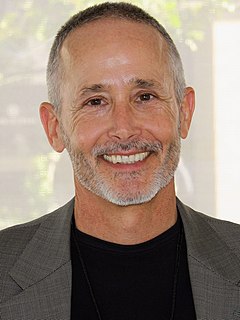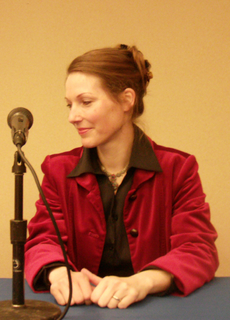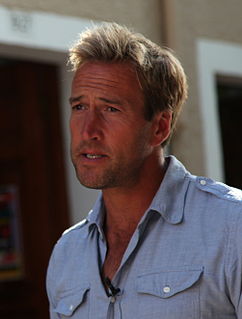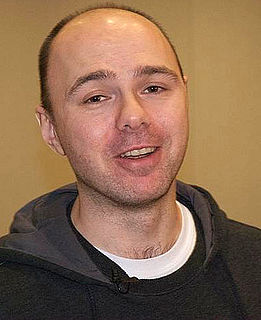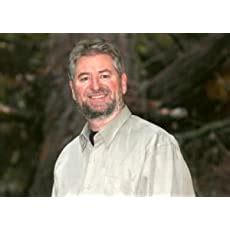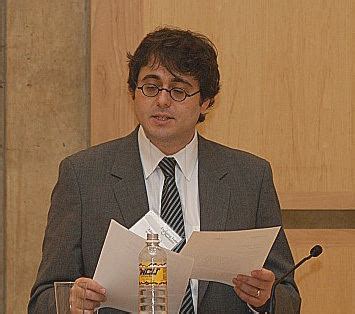A Quote by Steven Saylor
Adrienne Mayor's inquiry into the myth--and surprising reality--of Amazon women begins with the fierce Greek huntress Atalanta, but takes us deep into the past and as far afield as the Great Wall of China. With the restless curiosity and meticulous scholarship that have become her hallmark, the author once again has found a gap in my bookshelf and filled it, admirably.
Related Quotes
The Amazons is a stupendous achievement--a long-anticipated centerpiece in the great puzzle of humankind. The story of these forbidden women, silenced for so long by the rigidity of traditional scholarship, is as exciting and surprising as a bestselling murder mystery; I simply couldn't put it down. Through scholarly brilliance and passion, Adrienne Mayor has opened the door to a forgotten world of gender equality, and her book ought to be required reading in every college history course.
I always have a problem liking things that I'm told I should like. This has been the problem with most of the Wonders I have seen so far. The fact that this one is called the 'Great' Wall of China annoys me. I'll decide if it's great or not. It might end up being the 'All Right Wall of China' to me.
The image is a great reminder how we create our world through interpretations made up of language and symbols. Our language and symbols are always incomplete versions of a greater reality. Here is why inquiry is such a powerful tool when compared to simple advocacy. Inquiry allows us to discover what might be outside the cave instead of arguing about the shadows on the wall.
I always have difficulty with the Greek tragic plays. I think the difficulty one has - which is a serious problem - is the question of belief. Do you believe in the myth that the play expresses? Do you believe in it as myth or as reality? With any play, you have to believe in it as reality. You can't act a myth.
When the police arrived and found no lion, no broken wall, and no convicts, and the Head behaving like a lunatic, there was an inquiry into the whole thing. And in the inquiry all sorts of things about Experiment House came out, and about ten people got expelled. After that, the Head's friends saw that the Head was no use as a Head, so they got her made an Inspector to interfere with other Heads. And when they found she wasn't much good even at that, they got her into Parliament where she lived happily ever after.
Any U.S. attorney's office would fall over itself to investigate, for example, a state governor who, while running for reelection against a former mayor, so much as hinted to the mayor's successor that, say, highway funds would be restricted unless the current mayor were to announce an inquiry into her predecessor's alleged corruption.
It takes a little time to create a gap between the witness and the mind. Once the gap is there, you are in for a great surprise, that you are not the mind, that you are the witness, a watcher. And this process of watching is the very alchemy of real religion. Because as you become more and more deeply rooted in witnessing, thoughts start disappearing. You are, but the mind is utterly empty.
What they teach you as history is mythology and true mythology is far from fantasy -- it is our true history. A bulk of our real history can be found in Egyptian and Greek mythology. Yes, myths reveal to us worlds of other dimensions that make up our true reality. History books teach us that the minds of the past operated on the same frequency, dimension, or level of consciousness as we do now. Not true at all.
Nobody brings ancient history and archaeology to life like Adrienne Mayor. From the Russian steppes to China, and from Roman Egypt and Arabia to the Etruscans, she leads the reader on a breathtaking quest for the real ancient warrior women reflected in myths--their daring, archery, tattoos, fine horses, and independence from male control. The book's rich erudition, communicated in sparkling prose and beautiful illustrations, makes it a riveting read.
We must remember that there is a great difference between a myth and a miracle. A myth is the idealization of a fact. A miracle is the counterfeit of a fact. There is the same difference between a myth and a miracle that there is between fiction and falsehood -- between poetry and perjury. Miracles belong to the far past and the far future. The little line of sand, called the present, between the seas, belongs to common sense to the natural.
